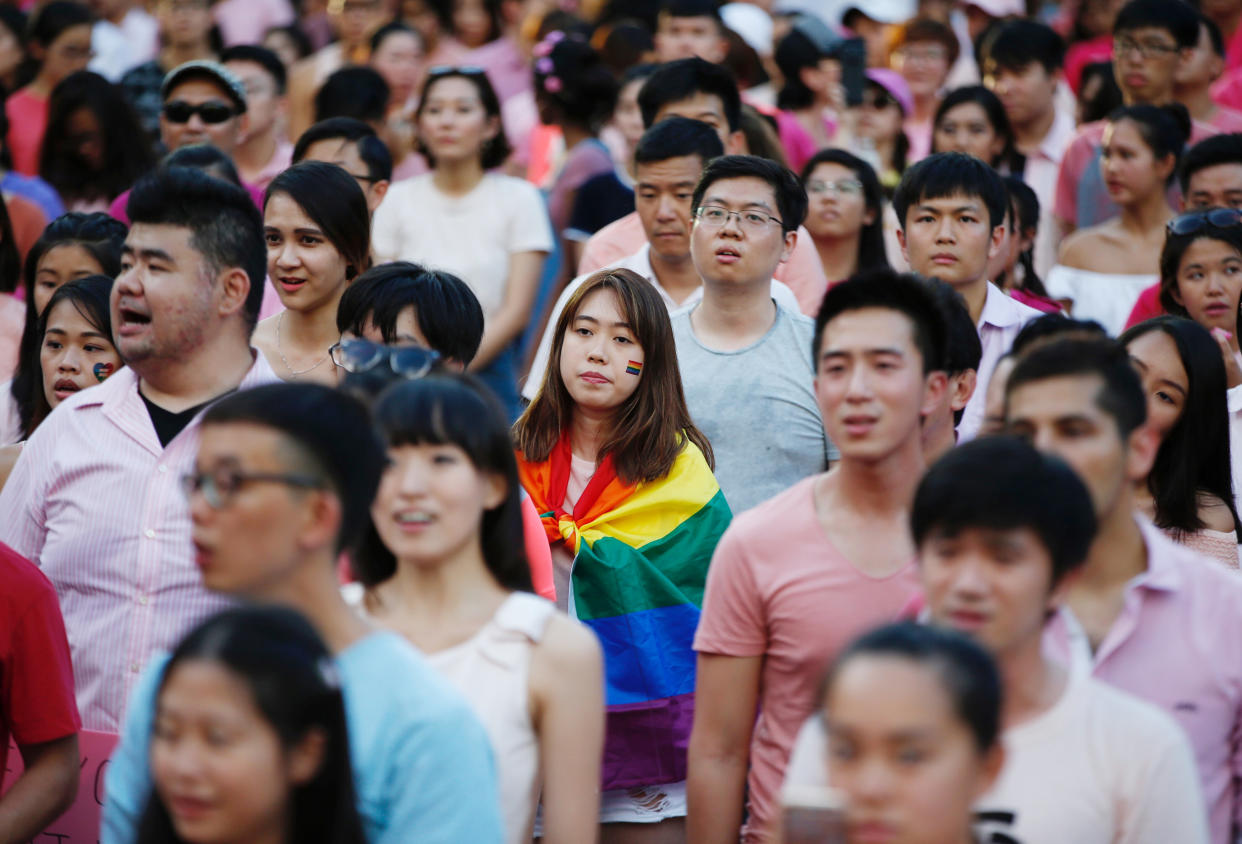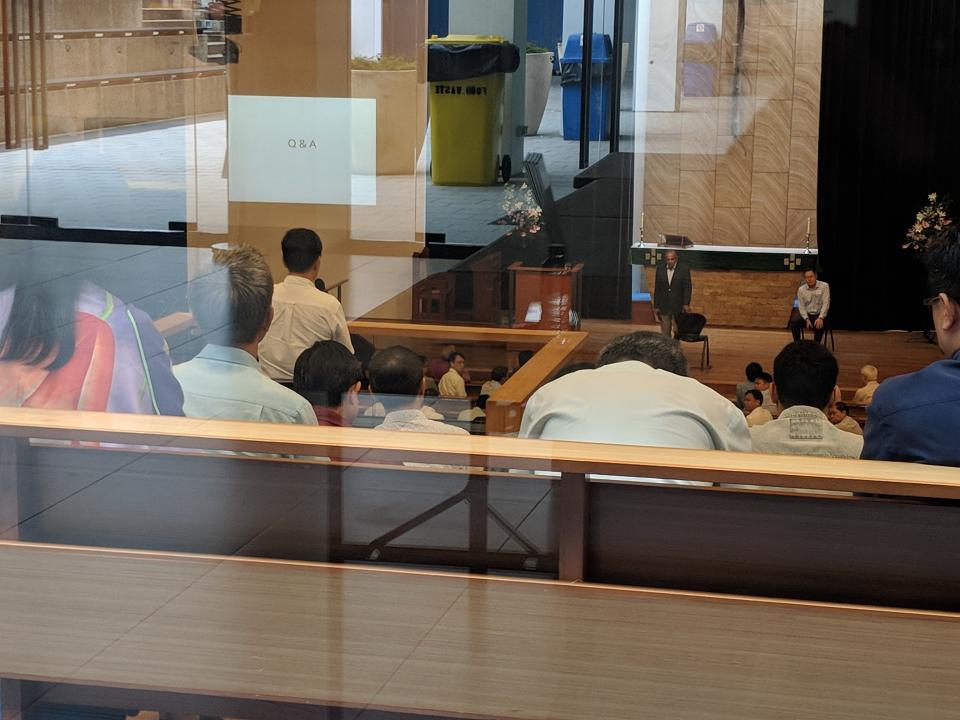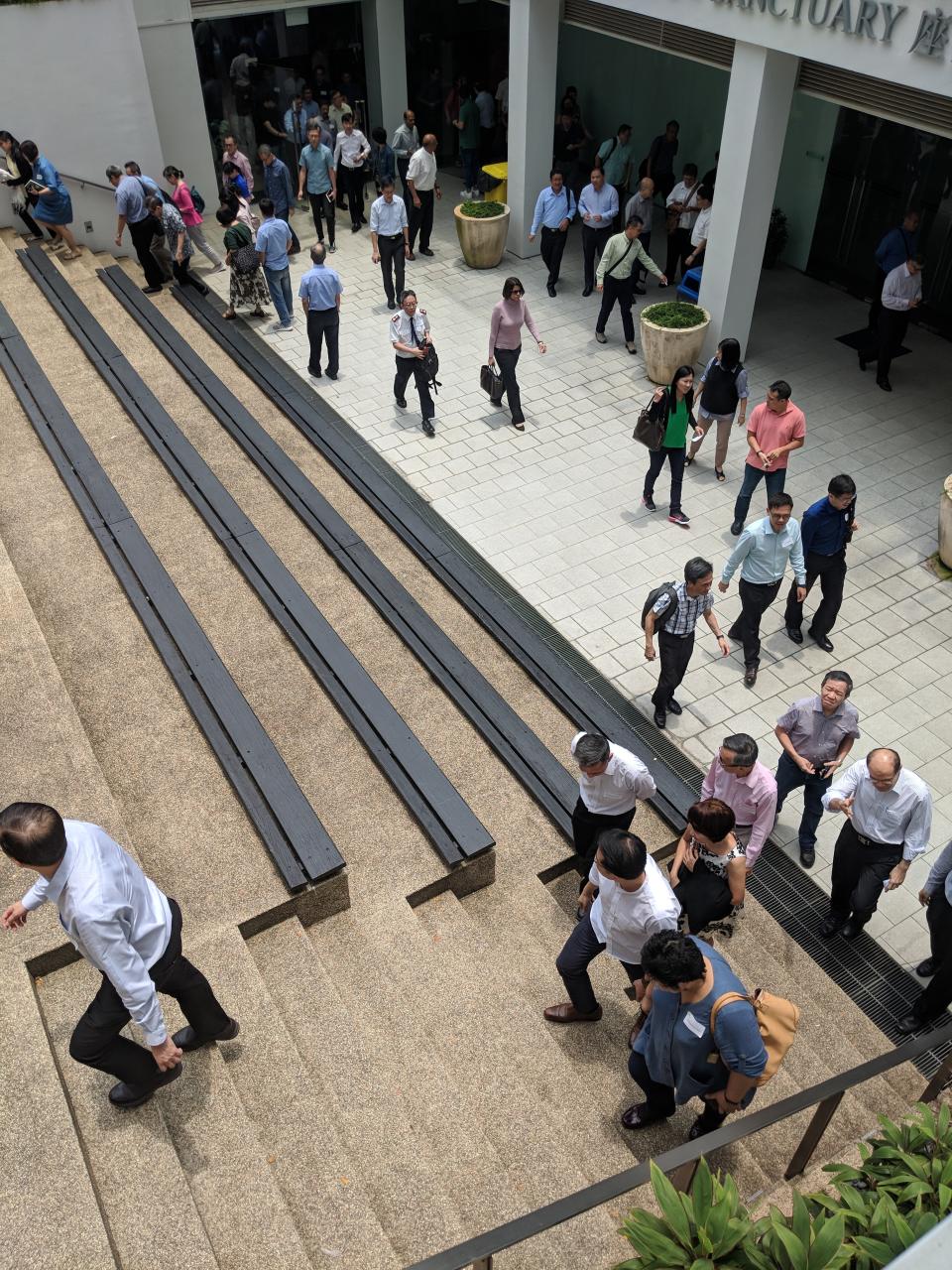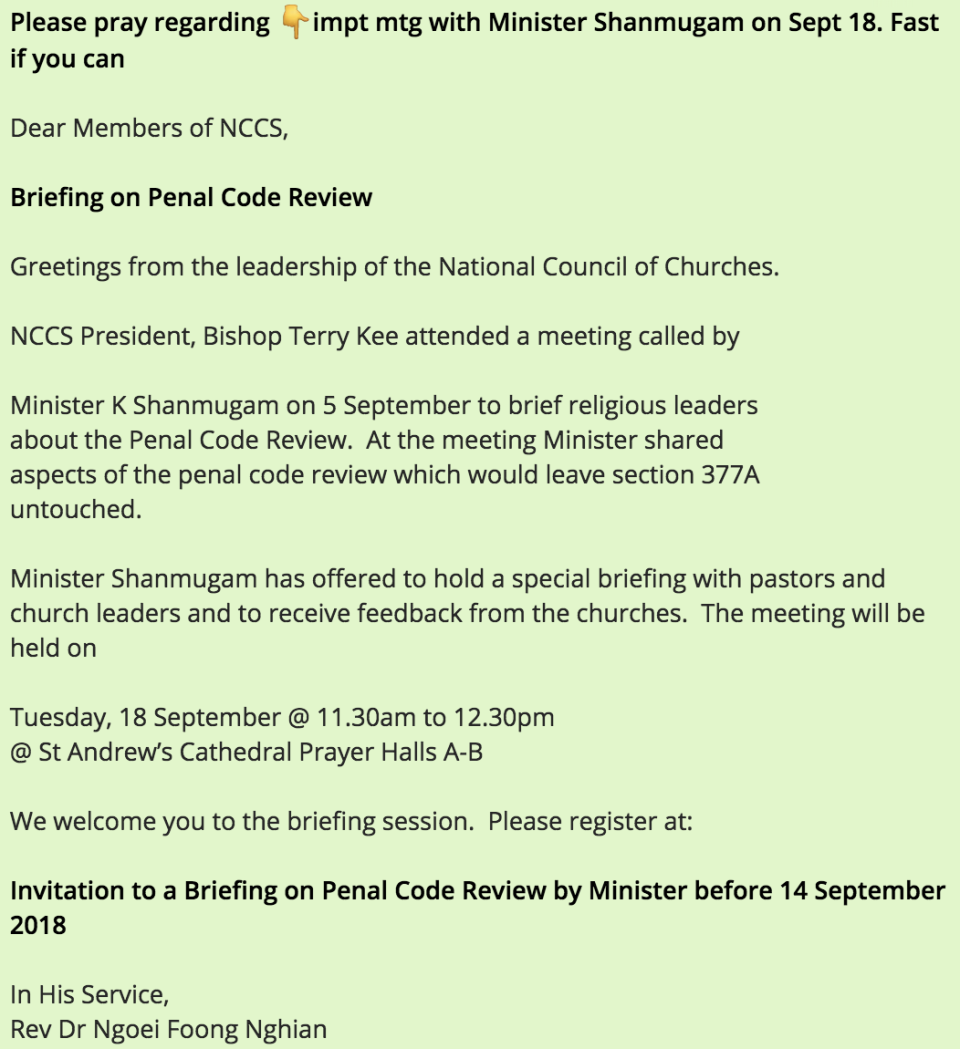K Shanmugam answers queries on Section 377A by church leaders at briefing

CLARIFICATION: In a previous version of this story, Yahoo News Singapore quoted an attendee at the briefing as saying that Minister K Shanmugam had called for the Christian community to brace themselves for “unexpected and fast changes”. The Ministry of Home Affairs clarified to say the Minister did not say this.
Minister for Home Affairs and Law K Shanmugam addressed queries about Section 377A of the Penal Code, which criminalises sex between men, at a closed-door briefing for hundreds of church leaders on Tuesday (18 September).
The almost two-hour briefing, organised by the National Council of Churches (NCCS) and estimated to be attended by 300 to 400 people, covered recommendations by a committee set up in 2016 to conduct a wide-ranging review of the Penal Code.
Among the topics raised by a Ministry of Home Affairs (MHA) representative during the briefing included enhanced protection for “vulnerable victims”, decriminalisation of attempted suicide and repealing marital immunity for rape, said several attendees approached by Yahoo News Singapore outside the St Andrew Cathedral Prayer Halls, where it was held.
Section 377A was not part of the review.
Yahoo News Singapore understands that the attendees raised questions on the topics discussed as well as on the government’s decision not to review Section 377A during the Q&A session with Shanmugam.

One of the attendees, Reverend Peter Eng, 59, of Christian community @TheWell said that the minister reiterated that the “government will not actively enforce the law”.
Shanmugam also cited findings of an independent poll done by the authorities showed that a majority in Singapore still support Section 377A (65 per cent) and oppose same-sex marriage (about 80 per cent), according to Eng. Yahoo News Singapore has reached out to the MHA for more details on that survey.
In comparison, the results of an online survey conducted in July-August by independent market research company Ipsos Public Affairs found that 55 per cent of respondents in Singapore still support Section 377A.
“In my view, (the repealing of 377A) may in a certain way come to Singapore (because of popular Westernised influences),” said Eng. “(Shanmugam raised the example) that America is a big country and it has changed so much in four years” and that the impact would be even greater for a small country like Singapore, Eng added.
The specific law has been subjected to many challenges as it is ambiguous and “not well-crafted”, he added.
“I think most people don’t see the point of criminalising it the way the law does, in a certain sense, it may have gone overboard in criminalising it.”
An attendee, who did not want to be identified, called it a “good and frank discussion”, without elaborating.
Another attendee, who also wanted to remain anonymous, said, “Most of us are from the church, and we want to keep Section 377A. We are all religious people.” Another conceded that ultimately, the younger Internet generation will “rule the day”.

Heated discussions over Section 377A
The debate over Section 377A in Singapore, introduced in 1938, was reignited after the Supreme Court of India decided on 6 September that consensual gay sex was not a crime in the country following a two-decade legal battle.
Justice Dipak Misra had called Section 377 of the India Penal Code “an odious weapon for harassment” that was “irrational, indefensible and manifestly arbitrary”.
The landmark ruling stirred heated discussions among Lesbian, Gay, Bisexual, and Transgender (LGBT) activists in Singapore arguing for a repeal of the law and those who are against such a move. Section 377A was enacted when India and Singapore were still under British colonial rule.
Veteran Singapore diplomat Tommy Koh, who is Ambassador-at-Large, waded into the debate when he encouraged Singapore’s gay community to bring a class action to challenge the constitutionality of Section 377A in a Facebook post.
A Ready for Repeal petition, set up by various local LGBT groups, has garnered more than 43,000 signatories to date, including that of prominent businessman Ho Kwon Ping.
The introduction to the petition, authored by theatre director Glen Goei and legal trainee Johannes Hadi noted, “How much longer must gay Singaporeans live as second class citizens; branded criminals by laws meant to protect all Singaporeans?”
On the other hand, a petition calling for 377A to be retained, which has garnered over 104,000 signatures so far, called on supporters to “reiterate the desire to keep the Penal Code to convey to our future generations that marriage act should only be an acceptable norm between a man and a woman”.
Shanmugam had previously said the government is caught between a majority of Singaporeans opposing the repeal of the law and a “growing minority” who want it abolished.
“The laws will have to keep pace with the changes in society,” he added.
Engaging stakeholders on Penal Code Review
A WhatsApp message circulating last week signed off by Rev Dr Ngoei Foong Nghian, General Secretary of the NCCS, called on members of the council to register for a feedback session and a “special briefing with pastors and church leaders” offered by Shanmugam.

The message added that the council’s president, Bishop Terry Kee, attended an earlier meeting by the minister where religious leaders were briefed on “aspects of the Penal Code review which will leave Section 377A untouched”.
The last comprehensive review of the 150-year-old Penal Code was completed in 2007. A total of 169 recommendations have been made for the current review.
In response to queries by Yahoo News Singapore, an MHA spokesperson told Yahoo News Singapore on 13 September that the sessions are “part of the government’s consultation plans to canvass views” on recommendations by the Penal Code Review Committee.
“Besides public feedback solicited via REACH and the MHA and MinLaw websites, the two ministries have been actively engaging social sector stakeholders, commercial sector stakeholders, lawyers, law academics and students, and religious groups for their views,” said the spokesperson.
“We will provide a summary of the key comments received at the close of the stakeholder engagement and public consultation exercise,” added the spokesperson.
Yahoo News Singapore has reached out to Majlis Ugama Islam Singapura, the Hindu Advisory Board, Roman Catholic Archdiocese of Singapore and Singapore Buddhist Federation regarding the discussions on the Penal Code review.
Separately, Yahoo News Singapore has also contacted the MHA about these discussions.
Related Singapore stories:


